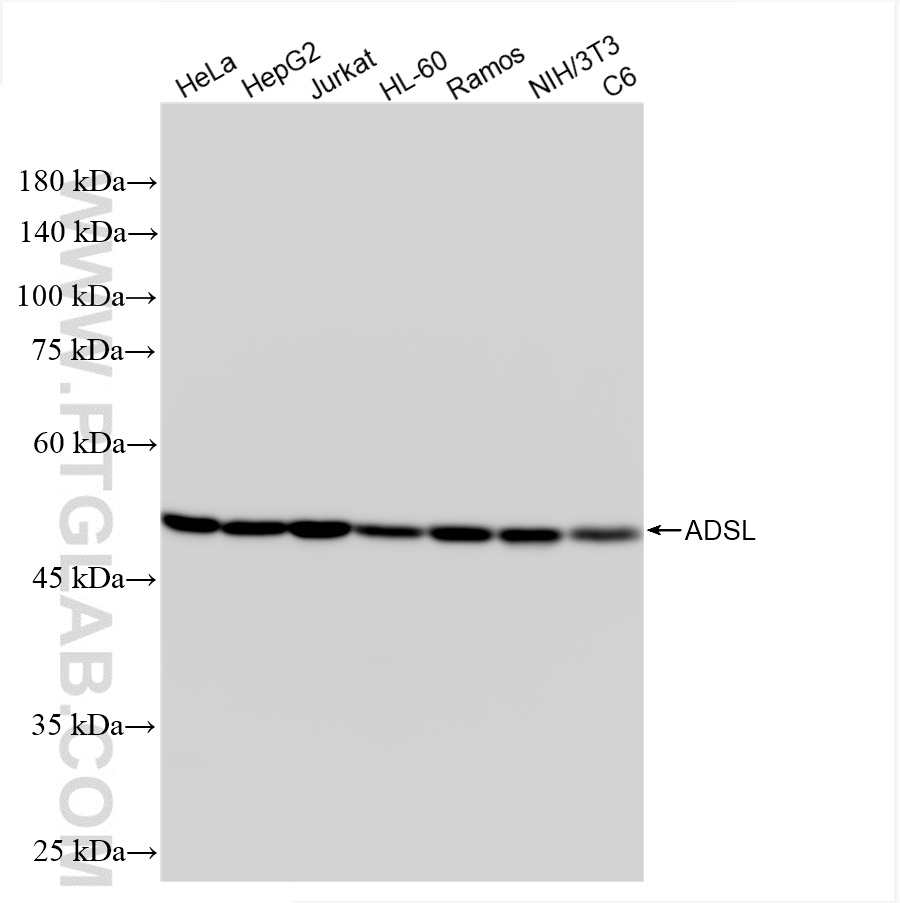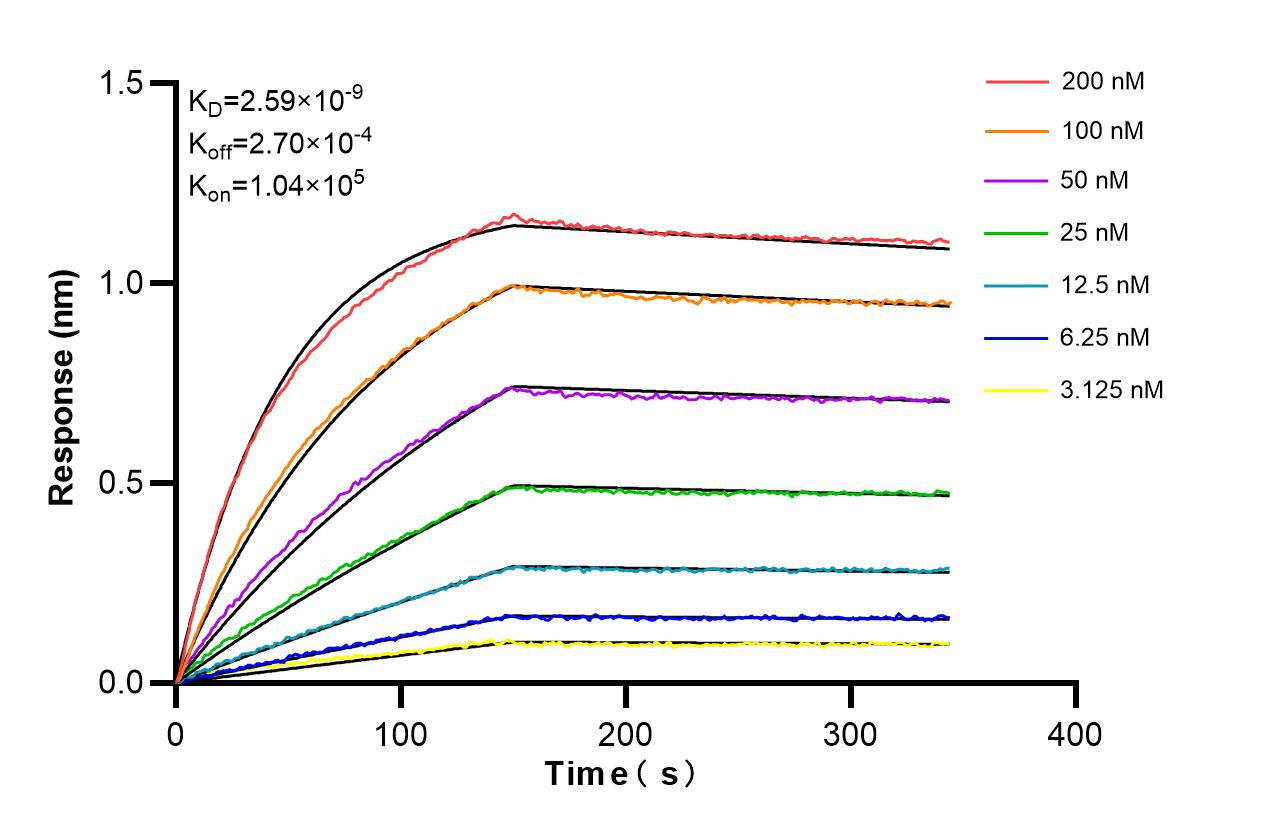验证数据展示
经过测试的应用
| Positive WB detected in | HeLa cells, HepG2 cells, Jurkat cells, HL-60 cells, Ramos cells, NIH/3T3 cells, C6 cells |
推荐稀释比
| 应用 | 推荐稀释比 |
|---|---|
| Western Blot (WB) | WB : 1:2000-1:10000 |
| It is recommended that this reagent should be titrated in each testing system to obtain optimal results. | |
| Sample-dependent, Check data in validation data gallery. | |
产品信息
86131-2-RR targets ADSL in WB, ELISA applications and shows reactivity with human, mouse, rat samples.
| 经测试应用 | WB, ELISA Application Description |
| 经测试反应性 | human, mouse, rat |
| 免疫原 |
CatNo: Ag7332 Product name: Recombinant human ADSL protein Source: e coli.-derived, PGEX-4T Tag: GST Domain: 1-354 aa of BC000253 Sequence: MAAGGDHGSPDSYRSPLASRYASPEMCFVFSDRYKFRTWRQLWLWLAEAEQTLGLPITDEQIQEMKSNLENIDFKMAAEEEKRLRHDVMAHVHTFGHCCPKAAGIIHLGATSCYVGDNTDLIILRNALDLLLPKLARVISRLADFAKERASLPTLGFTHFQPAQLTTVGKRCCLWIQDLCMDLQNLKRVRDDLRFRGVKGTTGTQASFLQLFEGDDHKVEQLDKMVTEKAGFKRAFIITGQTYTRKVDIEVLSVLASLGASVHKICTDIRLLANLKEMEEPFEKQQIGSSAMPYKRNPMRSERCCSLARHLMTLVMDPLQTASVQWFERTLDDSANRRICLAEAFLTADTILNT 种属同源性预测 |
| 宿主/亚型 | Rabbit / IgG |
| 抗体类别 | Recombinant |
| 产品类型 | Antibody |
| 全称 | adenylosuccinate lyase |
| 别名 | AMPS, ASASE, ASL, EC:4.3.2.2 |
| 计算分子量 | 55 kDa |
| 观测分子量 | 55 kDa |
| GenBank蛋白编号 | BC000253 |
| 基因名称 | ADSL |
| Gene ID (NCBI) | 158 |
| 偶联类型 | Unconjugated |
| 形式 | Liquid |
| 纯化方式 | Protein A purification |
| UNIPROT ID | P30566 |
| 储存缓冲液 | PBS with 0.02% sodium azide and 50% glycerol, pH 7.3. |
| 储存条件 | Store at -20°C. Stable for one year after shipment. Aliquoting is unnecessary for -20oC storage. |
背景介绍
ADSL(adenylosuccinate lyase) is also named as AMPS, ASase, ASL and belongs to the lyase 1 family. It is an enzyme involved in 2 pathways of purine nucleotide metabolism and catalyzes cleavage of succinyl groups to yield fumarate (PMID:18524658). Defects in ADSL are the cause of adenylosuccinase deficiency (ADSL deficiency). In humans, mutations in ADSL lead to an inborn error of metabolism originally characterized by developmental delay, often with autistic features (PMID:20884265). The ADSL enzymatic activity is reduced in lymphocytes and red blood cells of the patient with severe psychomotor retardation (PMID:9545543). It has 2 isoforms produced by alternative splicing.
实验方案
| Product Specific Protocols | |
|---|---|
| WB protocol for ADSL antibody 86131-2-RR | Download protocol |
| Standard Protocols | |
|---|---|
| Click here to view our Standard Protocols |



